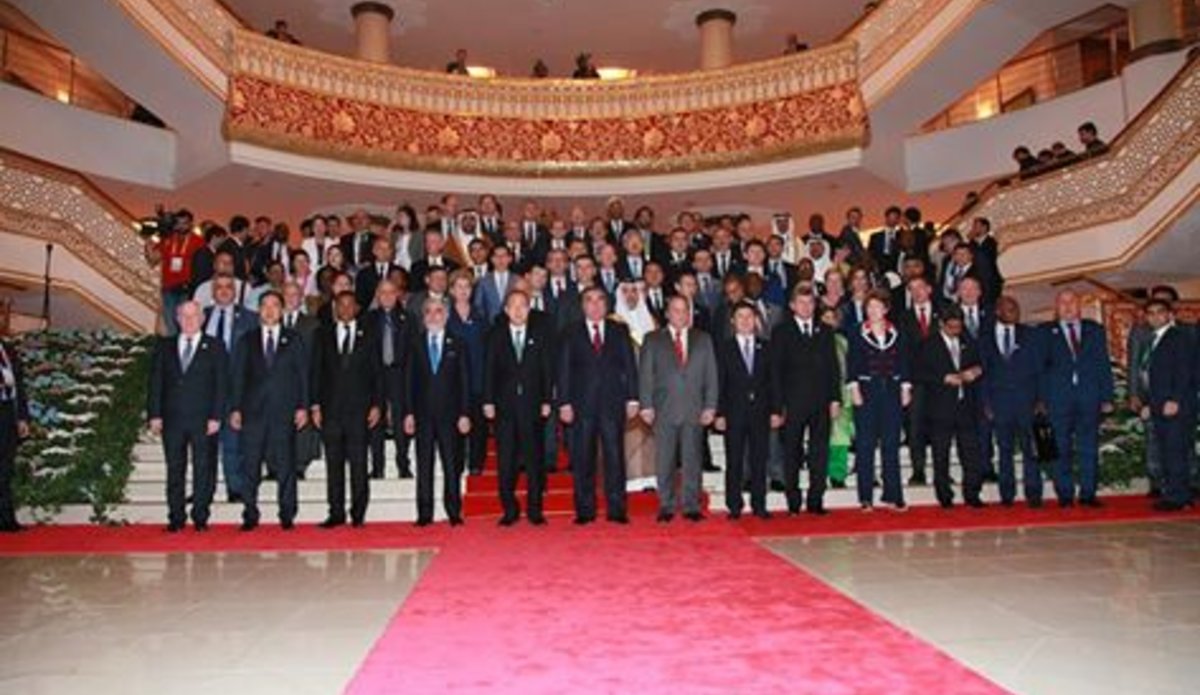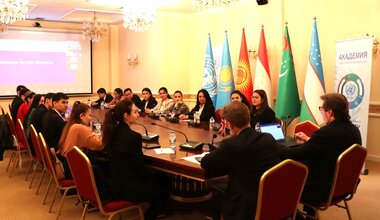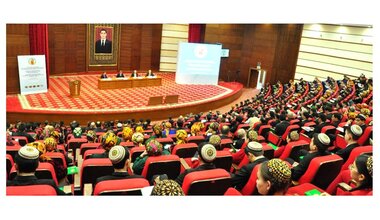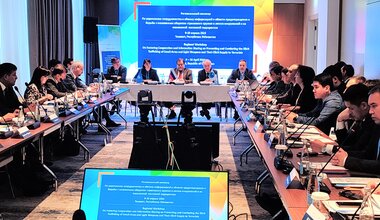Speech by SRSG Draganov at the International Conference “Water for Life”
It is my honor to participate in this High Level Conference on the International Decade for Action “Water for Life”, and my pleasure to be in this beautiful city of Dushanbe.
I wish to thank our host, the Government of Tajikistan for the kind hospitality accorded to the UN delegation and other guests. We greatly appreciate the demonstrated commitment and support of the Government of Tajikistan to the development of international cooperation on the use of water resources. The initiative to declare the Decade for Action “Water for Life” as well as the Government’s hosting of this meeting is yet another demonstration of its serious commitment to water-related Millennium Development Goals and the Post-2015 Development Agenda.
Ladies and Gentlemen,
The importance of water for human beings cannot be overestimated. Any effort we make for the improvement of people’s livelihood, be it in relation to food, energy, housing or transportation, is inevitably linked to the use of water. Good water governance is, therefore, a prerequisite for development, social equity and food security.
Now, as we all know, fresh water resources are limited and unequally distributed across countries and regions. This can be a source of disputes and instability, threatening regional and international peace and security. The experience in different parts of the globe shows that access to water can be a cause for tensions, but it could serve as a catalyst for cooperation and peace-building as well. A cooperative approach to the management of common water resources can help overcome disputes and build lasting trust between countries and communities. Moreover, cooperation on water and water-related challenges, such as connectivity, energy security and food, is likely to open up new opportunities for trade, industry and agriculture. It is thus key to poverty eradication and sustainable development.
Here, in Central Asia, multiple challenges related to the management of common water resources constitute an important factor of regional relations. That is why one of the key priorities in the mandate of the UN Regional Center for Preventive Diplomacy for Central Asia is to provide support to the Governments of the Central Asian countries in reaching mutually acceptable solutions.
In this connection the Centre has been planning its programmatic activities so as to promote various formats of cooperation, both multilateral as well as bilateral. It is only through increased multi-format cooperation, based on key principles of International Law and coupled with joint action, that Central Asian countries can ensure sustainable use and benefit from the common water resources.
The UN Regional Center for Preventive Diplomacy for Central Asia supports the relevant international water instruments which promote sustainable management of trans-boundary river basins, in particular the 1992 UNECE Convention on the Protection and Use of Trans-boundary Watercourses and International Lakes and the 1997 United Nations Convention on the Law of the Non-Navigational Uses of International Watercourses. These Conventions provide a framework of key common principles and rules that may be applied in the particular regional context.
Together with our partners we are actively engaged in promoting water cooperation in Central Asia. We try to demonstrate shared benefits and mutual gains from cooperation, and share best practices and lessons learnt in the field. Together with the Governments of the Central Asian countries, UNECE and other stakeholders, UNRCCA works on ways to ensure harmonized interpretation and effective implementation of the key principles of International Water Law. We also engage with the countries to modernize the regional legal framework for the management of trans-boundary water resources and together with the World Bank and the UN agencies we support the Central Asian states in dealing with the consequences of glacier melting and climate change.
In conclusion, let me reiterate that international cooperation on water governance has a crucial contribution to make to the advancement of peace and human development, both regionally and globally, and the UNRCCA stands ready to assist the countries of Central Asia in this noble endeavor.
I wish you all an engaging and fruitful discussion. Thank you.
 UN
UN





